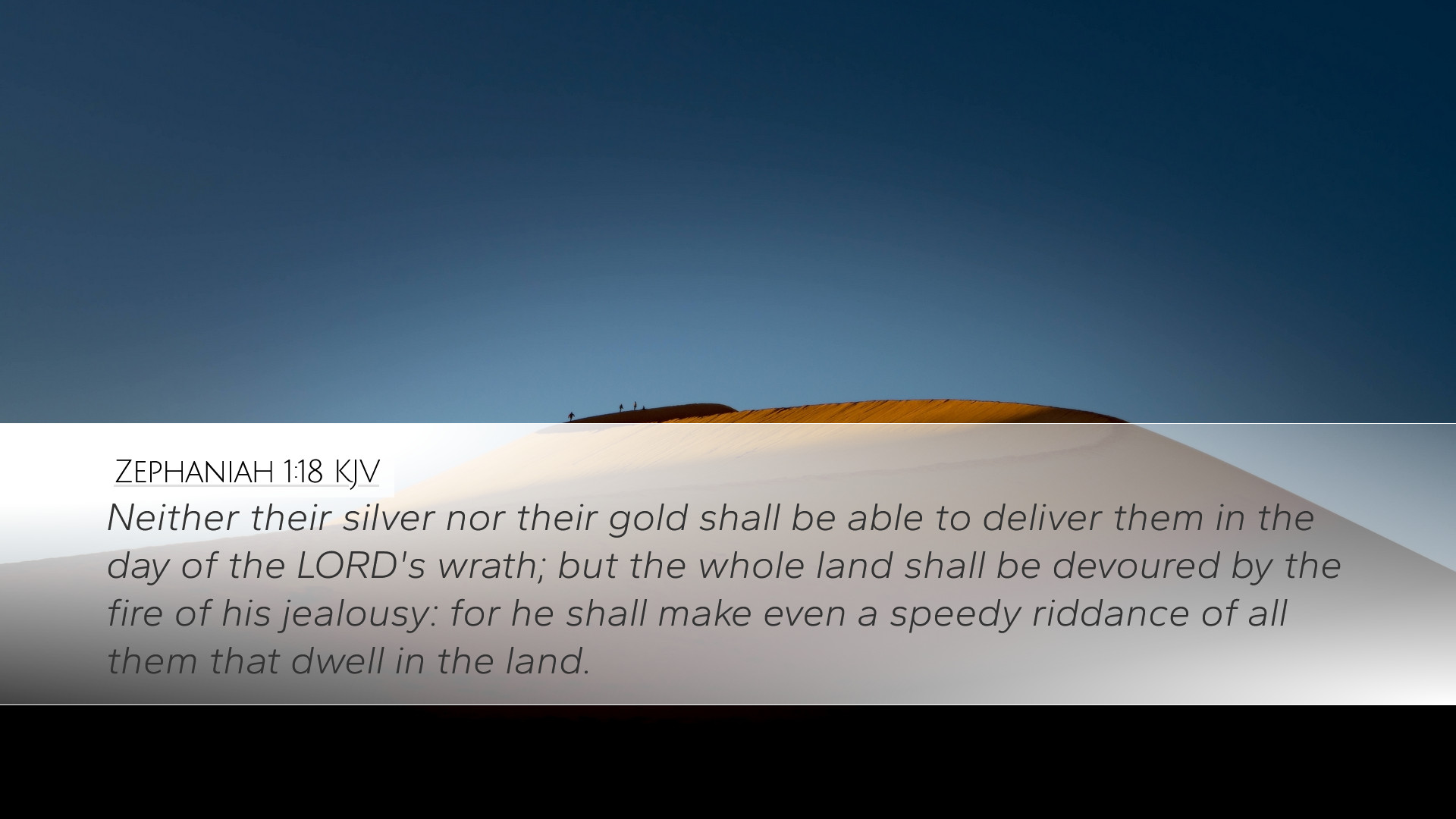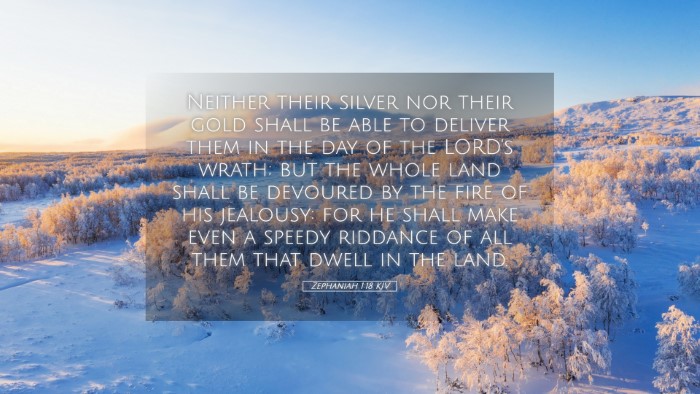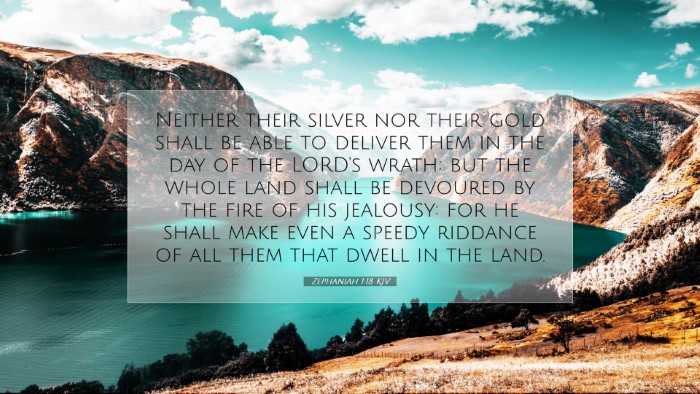Old Testament
Genesis Exodus Leviticus Numbers Deuteronomy Joshua Judges Ruth 1 Samuel 2 Samuel 1 Kings 2 Kings 1 Chronicles 2 Chronicles Ezra Nehemiah Esther Job Psalms Proverbs Ecclesiastes Song of Solomon Isaiah Jeremiah Lamentations Ezekiel Daniel Hosea Joel Amos Obadiah Jonah Micah Nahum Habakkuk Zephaniah Haggai Zechariah MalachiZephaniah 1:18
Zephaniah 1:18 KJV
Neither their silver nor their gold shall be able to deliver them in the day of the LORD's wrath; but the whole land shall be devoured by the fire of his jealousy: for he shall make even a speedy riddance of all them that dwell in the land.
Zephaniah 1:18 Bible Commentary
Commentary on Zephaniah 1:18
Verse Text: "Neither their silver nor their gold shall be able to deliver them in the day of the Lord’s wrath; but the whole land shall be devoured by the fire of His jealousy: for He shall make even a speedy riddance of all them that dwell in the land."
Introduction
The book of Zephaniah speaks profoundly about the day of the Lord, and in Zephaniah 1:18, we encounter a powerful declaration regarding the inability of material wealth to save from divine judgment. The verse invites reflection on God’s jealousy, His wrath, and the futility of human security when faced with divine retribution.
Exegesis and Insights
-
The Futility of Wealth:
Matthew Henry emphasizes that the verse categorically dismisses the efficacy of earthly treasures in the face of God's judgment. The text conveys a stark warning: no amount of silver or gold can protect individuals or nations from the wrath of God.
-
The Wrath of the Lord:
Albert Barnes notes that the "day of the Lord's wrath" indicates a time when God intervenes in human affairs, bringing justice to bear. In this judgment, God’s jealousy is not a mere emotion but a divine attribute that underscores His commitment to righteousness and the sanctity of His glory.
-
God's Jealousy:
Adam Clarke offers a perspective on God’s jealousy, viewing it as a protective attribute rather than a negative human trait. God’s jealousy for His people is a call to holiness, indicating His desire for exclusivity in the worship and devotion of His creation.
-
The Nature of Judgment:
All commentators agree that the 'fire of His jealousy' signifies the intense and purifying nature of God’s judgment. Matthew Henry describes this fire as both consuming and cleansing, aimed at bringing purity to a defiled land.
Theological Implications
-
The Sovereignty of God:
This verse highlights the sovereignty of God over all creation and all resources. He is the ultimate judge, and no human effort can withstand His will when He decides to act. The rich and powerful will not escape judgment through their wealth.
-
The Inevitability of Judgment:
Zephaniah deals with the inevitability of judgment, which is a recurring theme in prophetic literature. The 'speedy riddance' suggests that judgment will come swiftly, leaving no time for repentance or preparation, reinforcing the urgency of the prophets’ call to return to God.
-
Call to Repentance:
In light of God’s impending judgment, both Zephaniah and his contemporaries were calling for repentance. The lack of security found in wealth should lead to an acknowledgment of reliance on God rather than material possessions.
Practical Applications
-
Trust in God, Not Material Wealth:
This verse serves as a reminder for believers to place their trust in God rather than the uncertainty of wealth. Wealth can be fleeting and ultimately meaningless when faced with eternal realities.
-
Holiness and Righteous Living:
The jealousy of God is an invitation to pursue a lifestyle that pleases Him. Believers are encouraged to examine their lives and ensure they align with God’s holiness, appealing to a deeper commitment to righteous living.
-
Awareness of Judgment:
This scripture compels believers to consider the reality of judgment and encourages them to share the message of repentance with others. The urgency expressed in the verse reminds us that time is limited.
Conclusion
Zephaniah 1:18 encapsulates a crucial message for believers today: material possessions cannot save; only a authentic relationship with God can lead to deliverance from His judgment. As we reflect on this passage, may we seek to live lives that are marked by holiness and a deep reliance on God's provision, acknowledging that true security is found in Him alone.


